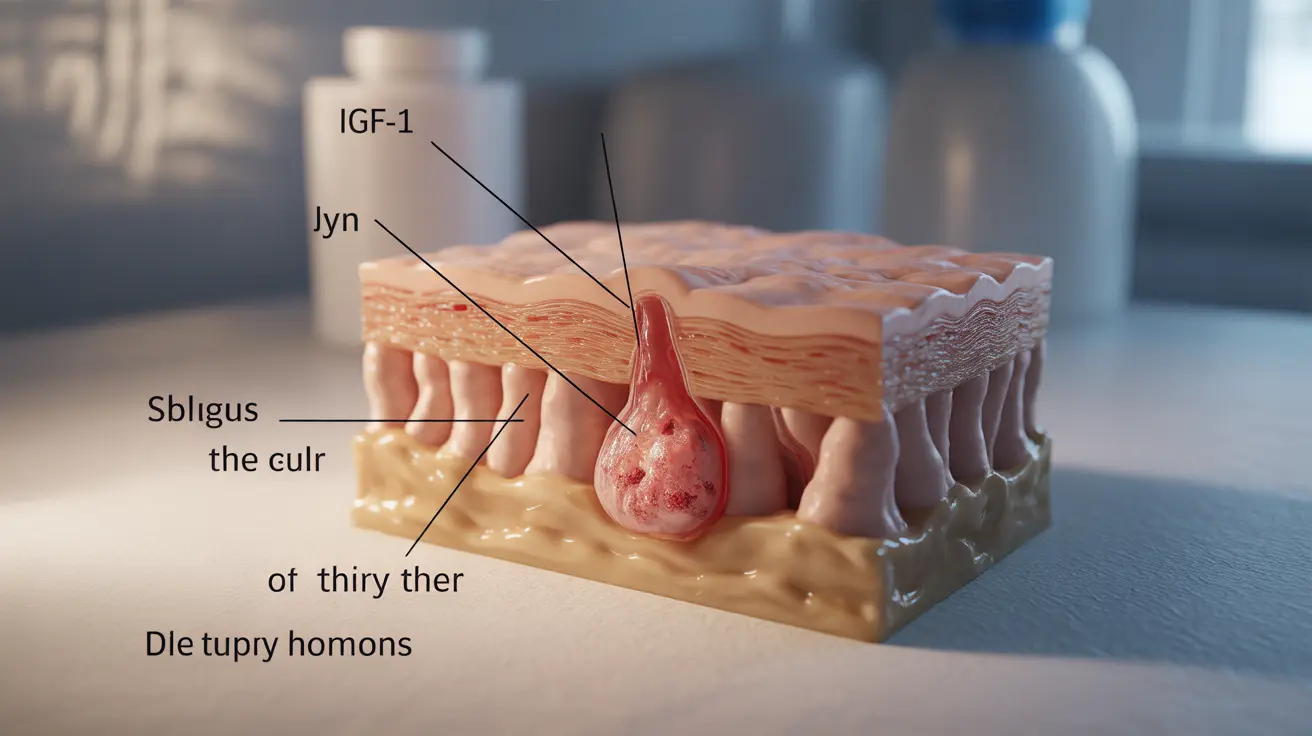If you've ever wondered whether your dairy consumption might be affecting your skin, you're not alone. The relationship between dairy products and acne has been a topic of significant interest in both scientific research and personal skincare journeys. Understanding this connection can be crucial for managing acne-prone skin and making informed dietary choices.
While many factors contribute to acne development, growing evidence suggests that dairy consumption may play a meaningful role in skin health for some individuals. Let's explore the scientific evidence behind this connection and what it means for your diet and skincare routine.
How Dairy Products May Influence Acne Development
The potential link between dairy and acne involves several biological mechanisms. Dairy products naturally contain hormones and growth factors that can influence our skin's behavior. When consumed, these compounds may trigger increased sebum production and inflammation in the skin, potentially leading to more frequent breakouts.
The Role of Hormones in Dairy
Cow's milk contains various hormones, including insulin-like growth factor-1 (IGF-1), which can stimulate oil gland production and promote inflammation. Even in hormone-free milk, the natural proteins present can trigger hormonal responses in our bodies that may affect skin health.
Different Types of Dairy and Their Impact on Skin
Not all dairy products affect the skin in the same way. Understanding these differences can help you make more informed choices about your diet:
Milk and Skin Health
Research suggests that milk, particularly skim milk, may have the strongest association with acne development. The processing of skim milk can concentrate certain proteins and hormones that might influence skin health more significantly than whole milk.
Fermented Dairy Products
Yogurt and certain cheeses, being fermented dairy products, may have a different impact on skin health compared to milk. The fermentation process can alter the hormonal components and may make these products more tolerable for some people with acne-prone skin.
Signs Dairy Might Be Affecting Your Skin
Consider these indicators that dairy might be influencing your acne:
- Breakouts occurring consistently after dairy consumption
- Acne primarily located along the jawline and chin
- Improvement in skin condition when dairy intake is reduced
- Pattern of inflammatory acne that doesn't respond well to typical treatments
Alternative Options and Dietary Modifications
If you suspect dairy is affecting your skin, consider these alternatives:
- Plant-based milk alternatives (almond, oat, soy)
- Calcium-rich non-dairy foods (leafy greens, fortified products)
- Probiotic supplements to support gut and skin health
- Gradual dairy reduction to monitor skin changes
Frequently Asked Questions
Does drinking milk cause or worsen acne, and if so, which types of milk are most likely to affect my skin? Research suggests that milk, especially skim milk, may contribute to acne development in some people. The processing of skim milk can concentrate proteins and hormones that might influence skin health more than whole milk or other dairy products.
How do hormones and inflammation in dairy products contribute to acne development? Dairy products contain natural hormones and growth factors that can increase sebum production and inflammation in the skin. These compounds, particularly IGF-1, may trigger or worsen acne by affecting oil gland activity and promoting inflammatory responses.
Can eating yogurt or cheese trigger acne, or are these dairy products safer for acne-prone skin? Fermented dairy products like yogurt and certain cheeses may have less impact on acne compared to milk. The fermentation process alters their composition, potentially making them more tolerable for some people with acne-prone skin.
Will cutting out dairy completely help clear up persistent acne, or are other factors more important? While eliminating dairy may help some individuals, acne is multifactorial. Other factors like genetics, hormones, stress, and overall diet also play important roles. A complete approach to acne management should consider all these factors.
How can I tell if dairy is a cause of my acne and what dietary changes might reduce breakouts? Keep a food diary and note any correlations between dairy consumption and breakouts. Consider a systematic elimination of dairy products for 4-6 weeks while maintaining detailed skin observations. Gradually reintroduce different dairy products one at a time to identify specific triggers.




